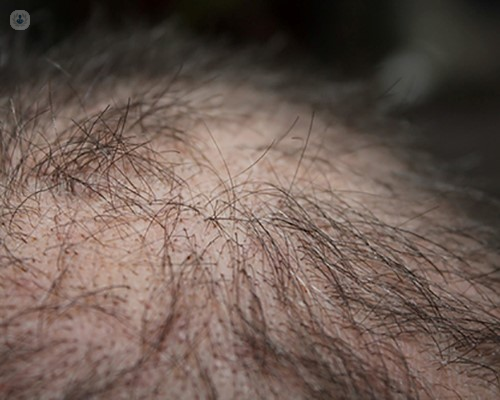Understanding hair loss: Causes, myths, and solutions
Written in association with:Hair loss is a pervasive issue that affects millions of individuals worldwide, transcending age, gender, and ethnicity. Whether it's gradual thinning or sudden bald patches, the experience of losing hair can be distressing. In her latest online article, Dr Sabina Ghani aims to unravel the complexities of hair loss, delving into its various causes, dispelling common myths, and exploring a range of practical solutions for those grappling with this condition.

Understanding hair loss:
Hair loss manifests in different forms, from a slight increase in shedding to noticeable thinning or baldness. While it's normal to lose around 50 to 100 strands of hair per day as part of the natural hair growth cycle, excessive loss can signal an underlying problem. The causes of hair loss are multifaceted, ranging from genetic predispositions and hormonal imbalances to nutritional deficiencies, autoimmune conditions, stress, and environmental factors.
Myths vs. reality:
Hair loss is often surrounded by misconceptions and myths, leading to confusion and misinformation. For instance, there's a common belief that frequent shampooing can exacerbate hair loss. However, dermatologists emphasise that regular cleansing is crucial for scalp health and doesn't contribute to hair shedding. Similarly, the notion that wearing hats suffocates hair follicles and leads to baldness is largely unfounded, unless hats are excessively tight and cause traction alopecia—a form of hair loss resulting from prolonged tension on the hair.
Male pattern baldness vs. Female hair thinning:
Male pattern baldness is the most common type of hair loss in men, marked by a receding hairline and thinning on the crown of the head. This condition is largely driven by genetic predispositions and hormonal factors, particularly dihydrotestosterone (DHT), a derivative of testosterone. In contrast, female hair thinning tends to present as diffuse hair loss, with widening part lines and an overall reduction in hair density. Hormonal fluctuations, childbirth, menopause, and certain medical conditions can contribute to female hair loss.
Exploring solutions:
Addressing hair loss requires a multifaceted approach tailored to individual needs. Treatment options range from topical solutions and oral medications to minimally invasive procedures like platelet-rich plasma (PRP) therapy and low-level laser therapy (LLLT). Additionally, surgical interventions such as hair transplantation offer a more permanent solution for those with advanced hair loss.
Embracing self-care:
Beyond medical interventions, adopting a holistic approach to hair care can promote scalp health and mitigate hair loss. Nutrient-rich diets, comprising lean proteins, vitamins (particularly biotin and vitamin D), and minerals like iron and zinc, nourish hair follicles from within. Moreover, managing stress through relaxation techniques, regular exercise, and adequate sleep can help rebalance hormonal levels and minimise hair fall.
Dr Sabina Ghani is an esteemed GP with a special interest in dermatology. You can schedule an appointment with Dr Ghani on her Top Doctors profile.

